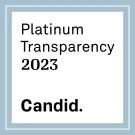
Mass incarceration and the drug war create racialized violence, harming our communities and especially impacting women and girls. For those who are systemically marginalized, a broken social safety net means they too often end up in the criminal legal system.
Today, the fastest growing population in U.S. prisons is women, who are entering at rate nearly double that of men. There are over 714,000 women incarcerated in around the world today; nearly 30% of this population (213,000) is found in the U.S., making it the world’s leading jailer of women. Women of color are incarcerated at much higher rates than white women; Black women in particular are incarcerated and nearly three times the rate as white women. Women and girls – and transgender and gender nonconforming people – who are caught up in the criminal legal system routinely experience higher rates of gender-based violence and trauma.
Katal’s Women and Girls Project (WGP) was launched to focuse on the unique impacts that mass incarceration and the drug war have upon women and girls (including transgender and gender nonconforming people), and seeks to advance needed change.
The goals of the WGP are:
- address and alleviate the racialized harms to women and girls caused by mass incarceration and the war on drugs;
- lift up, highlight, and amplify the voices and stories of women and girls impacted by these broken systems; and
- build leadership and organizing capacity of directly impacted women and girls in the work to change the policies and systems that impact our lives.
The WGP pursues its goals through three focus areas:
- Direct Service: Assisting women and girls who are impacted by mass incarceration and the drug war to access services, reentry, and support systems, including mental health, housing, and more.
- Training: Providing a range of trainings for directly impacted women and girls – including life skills, computer/digital literacy, advocacy and organizing, leadership, and more.
- Advocacy: Advocating for changes in laws and public policies to decarcerate and decriminalize; expand access to services and support systems; and improve the health and wellbeing of women and girls who have been impacted by mass incarceration and the war on drugs.
Building the leadership of women and girls is key to greater public safety for all.

